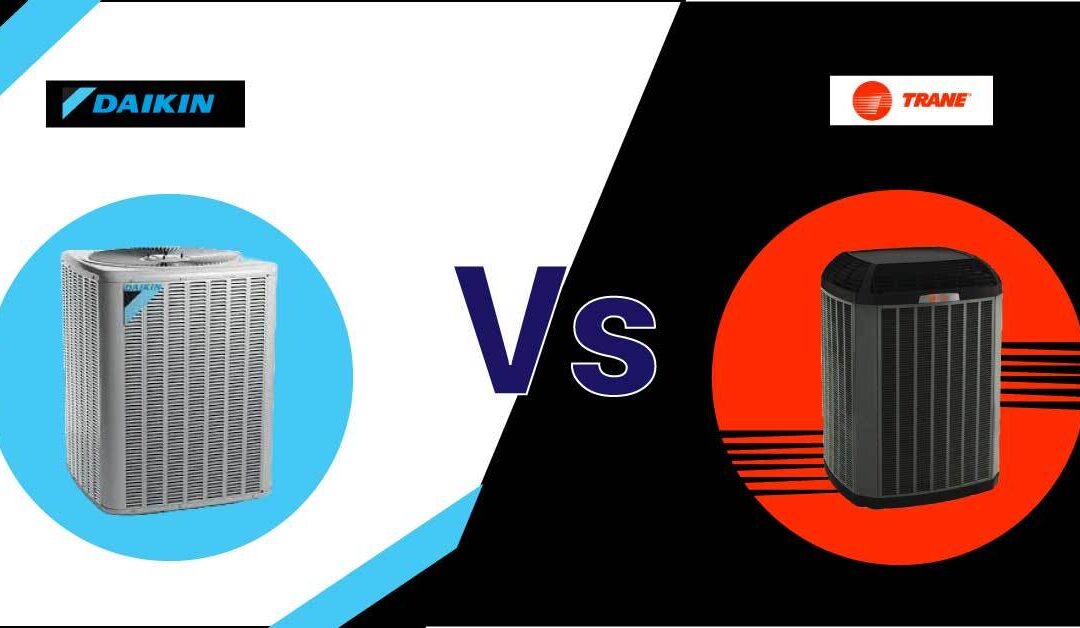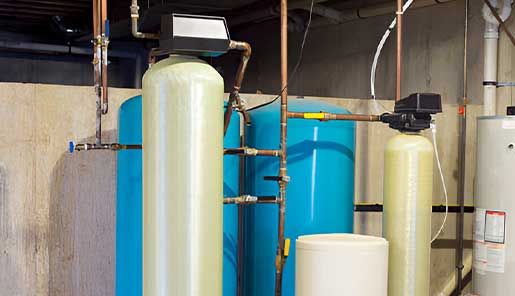
When it comes to choosing the culminating HVAC system for your home or business, the decision can be overwhelming. Two of the most respected names in the industry are Trane and Daikin. Both brands have a notoriety for quality, efficiency, and reliability, but which one is right for you? In this comprehensive blog, we’ll compare Trane and Daikin over different factors to help you make an informed decision.
1. History and Reputation
Trane:
Founded in 1885 by James Trane, this company has a long-standing history in the HVAC industry. Over the years, Trane has built a reputation for innovative solutions and high-quality items. The company’s dedication to research and improvement has driven to various advancements in HVAC technology. Nowadays, Trane is a backup of Ingersoll Rand and proceeds to lead the showcase with its solid and solid systems.
Daikin:
Built up in 1924, Daikin has developed to be a worldwide pioneer in discussing conditioning and HVAC frameworks. Daikin is headquartered in Osaka, Japan, and has a solid presence in over 150 countries. The company’s commitment to sustainability and energy efficiency has made it a favored choice for ecologically cognizant shoppers. Daikin’s innovative approach has resulted in a wide run of items that cater to distinctive needs and budgets.
2. Energy Efficiency
Trane:
Trane frameworks are outlined with vitality efficiency in intellect. Numerous of their models boast high Seer (Seasonal Energy Efficiency Ratio) ratings, which is a measure of how efficiently an air conditioner operates over a typical cooling season. The higher the Diviner rating, the more energy-efficient the system is. Trane’s center on vitality productivity not only helps reduce vitality bills but also minimizes the environmental effect of HVAC systems. For instance, Trane’s XV20i Variable Speed air conditioner has a Seer rating of up to 22, making it one of the most productive models available.
Daikin:
Daikin too excels in vitality efficiency, thanks to its advanced inverter technology. This innovation permits the compressor to adjust its speed according to the cooling demand, resulting in critical energy savings. Daikin’s systems are known for their tall Seer evaluations as well, with a few models reaching up to 24.5 Seer. The company’s commitment to vitality efficiency extends to their heating systems as well, with many models featuring tall AFUE (Annual Fuel Utilization Efficiency) ratings.
3. Technology and Features
Trane:
Trane offers a range of progressed highlights that enhance comfort and efficiency. One of their standout highlights is the ComfortLink™ II Communicating Control system. This system allows for exact temperature control and system diagnostics, ensuring optimal performance and efficiency. Also, Trane’s variable-speed technology adjusts the system’s yield to match the cooling or heating demand, providing steady comfort whereas reducing vitality consumption. Trane also offers smart thermostats that can be controlled remotely via a mobile app, allowing users to adjust their HVAC settings from anywhere.
Daikin:
Daikin is known for its inventive arrangements and cutting-edge innovation. One of their lead offerings is the Daikin VRV (Variable Refrigerant Volume) framework. This framework gives extraordinary adaptability and effectiveness, making it perfect for bigger properties or commercial applications. The VRV framework permits for person zone control, empowering diverse ranges of a building to be cooled or warmed independently. Daikin also offers keen technology integration, with frameworks that can be controlled via smartphone apps. This highlight permits clients to screen and alter their HVAC settings remotely, providing convenience and energy savings.
4. Durability and Reliability
Trane:
Trane is synonymous with durability and reliability. The company subjects its products to thorough testing methods to guarantee they can withstand extraordinary conditions. For case, Trane’s frameworks are tried in temperatures extending from -20°F to 120°F, ensuring they perform reliably in any climate. This commitment to quality has made Trane a trusted title in the HVAC industry, with many clients reporting decades of trouble-free operation. Trane too uses high-quality materials and components in their frameworks, advance enhancing their durability.
Daikin:
Daikin frameworks are too built to final, with a solid accentuation on quality control. The company’s manufacturing forms adhere to strict standards, ensuring each unit meets their high-quality benchmarks. Daikin’s items are designed to provide steady performance and longevity, backed by comprehensive warranties. For instance, Daikin’s premium frameworks come with a 12-year parts guarantee, giving clients peace of intellect and confidence in their investment. The company’s center on reliability amplifies their client back, with a committed team available to assist with any issues or concerns.
5. Cost
Trane:
While Trane systems are often on the higher end of the cost spectrum, their long-term savings on energy bills and negligible upkeep costs can counterbalance the initial investment. The upfront cost of a Trane system can range from $4,800 to $10,000, depending on the model and establishment necessities. In any case, numerous clients discover that the solidness and energy efficiency of Trane systems make them a worthwhile investment. Additionally, Trane often offers financing choices and rebates to help make their systems more affordable.
Daikin:
Daikin offers a range of items to suit different budgets, from high-end models with all the bells and whistles to more reasonable choices that still give amazing execution and productivity. The cost of a Daikin system can range from $4,500 to $9,000, depending on the show and installation prerequisites. Daikin’s center on vitality efficiency can result in critical savings on vitality bills over the system’s lifetime. The company too offers financing alternatives and incentives to help customers manage the initial cost.
6. Customer Support and Warranty
Trane:
Trane gives amazing clients back and offers comprehensive warranties, including a 10-year limited warranty on parts for numerous of their systems. Trane’s customer service team is known for being responsive and supportive, ensuring any issues are instantly tended to. The company moreover offers amplified guarantee choices for included peace of intellect. Trane’s arrangement of certified merchants and technicians ensures professional installation and support services, further enhancing the client experience.
Daikin:
Daikin also offers strong customer back and warranty choices. Their warranties typically include 10-year coverage on parts, with a few premium models offering up to 12 years of scope. Daikin’s customer support team is available to help with any questions or concerns, providing opportune and effective solutions. The company’s broad network of authorized merchants and specialists guarantees that customers get expert installation and maintenance services. Daikin too offers online resources, such as client manuals and troubleshooting guides, to help clients get the most out of their systems.
Read More:
Trane vs Carrier for 2024 – Which HVAC is Best For You
Detailed Comparisons in Key Areas
1. Climate Compatibility
Trane:
Trane systems are designed to perform well in a variety of climates, from extremely cold to scorching hot environments. Their extensive testing in extreme conditions guarantees that their units can handle any weather scenario.
Daikin:
Daikin too plans their frameworks to work productively in different climates. Their inverter innovation makes a difference to keep up reliable execution, indeed in fluctuating temperatures, making them appropriate for different geographic locations.
2. Clamor Levels
Trane:
Trane frameworks are built to work discreetly, with sound levels as high as 55 decibels for a few models. This makes them an extraordinary choice for private zones where commotion can be a concern.
Daikin:
Daikin moreover centers on minimizing clamor, with a few units working as unobtrusively as 19 decibels. This ultra-quiet execution is perfect for settings where clamor diminishment is vital, such as rooms and offices.
3. Natural Impact
Trane:
Trane is committed to supportability and diminishing natural affect. Their high-efficiency frameworks diminish vitality utilization, and numerous of their items utilize eco-friendly refrigerants that have a lower worldwide warming potential (GWP).
Daikin:
Daikin is a pioneer in advancing ecologically neighborly homes. They have created refrigerants with lower GWP and contribute intensely in making energy-efficient frameworks that diminish carbon emanations. Their commitment to maintainability amplifies to their fabricating forms and corporate practices.
4. Establishment and Maintenance
Trane:
Proper installation is basic for the performance and longevity of Trane systems. The company provides extensive preparation to its merchants and specialists to guarantee that installations are done accurately. Trane also offers upkeep plans to keep systems running efficiently and prevent potential issues.
Daikin:
Daikin moreover emphasizes the importance of proper installation and gives training to its network of authorized merchants and specialists. They offer maintenance administrations to ensure optimal performance and longevity of their frameworks. Regular maintenance checks offer assistance to recognize and resolve issues before they end up major issues, ensuring continuous comfort and efficiency.
Read More:
Lennox vs. Carrier For 2024 – Which Is Best For You?
Conclusion:
Both Trane and Daikin offer high-quality HVAC systems with distinct advantages. Trane is renowned for its durability, progressed control systems, and robust performance in extreme conditions, making it ideal for those seeking solid performance and cutting-edge innovation. On the other hand, Daikin’s accentuation on energy efficiency, inventive arrangements, and environmentally friendly practices makes it a top choice for eco-conscious consumers looking for flexibility and smart features.
When deciding between Trane and Daikin, consider factors such as your budget, specific needs, and environmental impact preferences. Contact Edwin Stipe HVAC & Plumbing For expert advice and a detailed assessment of your HVAC requirements in New Jersey and PA.







